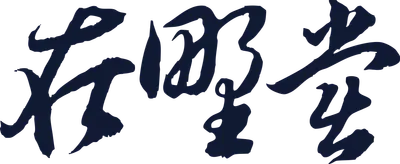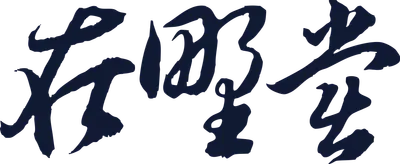作者:陈恩得 编辑:罗志飞 鲁慧文
《疯人院》近日正式开拍,首集《欢迎来到疯人院》现已上线。我是该剧的导演,这是一部融合现实隐喻、荒诞黑色幽默与政治讽刺的短剧,以“疯人院”为设定场景,构建出一个隐喻中国社会体制的封闭空间,通过病人与医护、权力者与清醒者的互动,逐步揭示出角色背后的社会原型与体制寓意。
与传统抗议或街头行动不同,《疯人院》以剧集方式切入民运表达,是近年来极为罕见的民运文化实践作品。该剧由一群亲身参与民主运动的成员自编自导自演,兼具反思性与传播性,既承载个体表达,也尝试以艺术方式激发更多观众的情感与认知共鸣。

该剧主要演员包括李经纬(“习进平”扮演者)、孙小龙(“习洼洼”扮演者)、黄小敏(“敏敏”扮演者)、罗志飞(“建国”扮演者)、李晓艳(“红红”扮演者)、郑敏(“媛媛”扮演者)、鲁慧文(“美丽”扮演者),卢新虎担任场务与道具,孙小龙兼任统筹。
黄小敏(右二)表示:“敏敏是一位因‘说了真话’被贴上疯子标签、投入疯人院的普通人。她没有背景,也无特权,却敢于发声、质疑、抗争。她代表着千千万万个曾为正义呐喊却被打压的中国平民。”
罗志飞(左一)表示:“扮演建国,是一次与自己过去对话的过程。他是红三代,有背景、有庇护,却因说真话被送进疯人院,成了‘体制内部的疯子’。我也曾在体制内坚持原则,揭露腐败,被警告‘再不闭嘴就送你进精神病院’。”
孙小龙(左二)表示:“‘习洼洼’——一个靠裙带关系上位、油腔滑调、惧内怕事的‘体制犬儒’。他让我明白:一个人疯不可怕,最可怕的是整个系统逼你装疯,还奖励你演得像。”
卢新虎(右一)表示:短剧《疯人院》是中国现实的写照。中国共产党将异见者、反对者送进监狱,送进疯人院。共产党他们以前这样做,现在这样做,将来也还是会这样做。
李经纬(右三)表示:习进平在《疯人院》中是院长的角色。《疯人院》通过诙谐幽默的方式揭露了极权专制统治者控制言论自由,残酷镇压和迫害说真话揭真相、求民主争自由之人士的社会本质,被“精神病”而闭嘴就是其中一种手段,非法囚禁残酷折磨进而达到禁言噤声的目的,没有言论表达的自由就没有其他基本人权。

我(图上右三)也是该剧的编剧、摄像和剪辑师。剧集暂定为100集,目标是300集,甚至更多。这是只要中共不倒,我们会一直创作下去。创作这部剧是用一种独特的方式来揭露中共暴政的本质,让观众欢笑的同时,希望通过这种艺术性的表达来唤醒更多中国人。
《疯人院》的出现,是一次不靠呐喊、不靠口号的民运表达。我们选择拍戏,用演出来质问现实、表达立场。这种方式,也许不快、不激烈,但它能留下东西,能进人心。在讲述和抗议之外,我们想开另外一条路,用作品,让更多人看懂、共鸣、甚至觉醒。
——
陈恩得
中国民主党党员、《疯人院》导演、编剧、摄像、剪辑师
2025年6月18日 于洛杉矶
“The Asylum” Sitcom Premieres, Marking a New Cultural Endeavor by the China Democracy Party
By Chen Ende | Edited by Luo Zhifei & Lu Huiwen Translator: Lu Huiwen
The China Democracy Party National Committee’s Los Angeles branch has officially launched production of its original 100-episode sitcom The Asylum, with the premiere episode “Welcome to the Asylum” now available online. I am the director of the show. This is a short-form political satire blending dark humor, absurdism, and metaphorical realism, set within a fictional mental asylum—an allegorical space mirroring the closed nature of Chinese society. Through the interactions between patients and staff, power holders and the awakened, the show gradually unveils the underlying social archetypes and systemic critiques embedded in each character.
Unlike traditional protests or street demonstrations, The Asylum offers a rare example of pro-democracy cultural expression in recent years. Written, directed, and acted entirely by participants in the democracy movement, the series balances personal reflection with public outreach. It not only allows individual voices to emerge but also aims to stir emotional resonance and awareness among viewers through artistic storytelling.

The main cast includes:
• Li Jingwei as “Xi Jinping”
• Sun Xiaolong as “Xi Wawa”
• Huang Xiaomin as “Minmin”
• Luo Zhifei as “Jianguo”
• Li Xiaoyan as “Honghong”
• Zheng Min as “Yuanyuan”
• Lu Huiwen as “Meili”
Lu Xinhui serves as stage manager and prop master, while Sun Xiaolong also works as production coordinator.
Huang Xiaomin (second from right) said:
“Minmin is just an ordinary person labeled insane and thrown into the asylum for ‘speaking the truth.’ She has no background or privilege but dares to question, to speak out, to resist. She represents the countless Chinese citizens who have been oppressed for standing up for justice.”
Luo Zhifei (far left) shared:
“Playing Jianguo was like revisiting my past. He’s a privileged ‘Red Third Generation’ who ends up in the asylum simply for telling the truth—an ‘insider madman.’ I, too, once tried to expose corruption from within the system and was warned: ‘If you don’t shut up, we’ll throw you in a psychiatric ward.’”
Sun Xiaolong (second from left) commented:
“‘Xi Wawa’ is a bootlicking bureaucrat who rose through nepotism—slick-tongued and spineless, terrified of his wife. He shows us that the real danger isn’t an individual going mad, but an entire system that forces you to act insane—and rewards you for doing it convincingly.”
Lu Xinhui (far right) said:
The Asylum is a reflection of China’s current reality. The Communist Party throws dissidents into prison, into psychiatric hospitals. They’ve done it before, they’re doing it now, and they’ll keep doing it.
Li Jingwei (third from right) added:
“In The Asylum, ‘Xi Jinping’ is the director of the institution. Through dark humor, the show exposes how authoritarian regimes suppress free speech and brutally silence those who speak the truth, fight for democracy, or demand freedom. Labeling people as ‘mentally ill’ is just one method—illegal detention and torture serve the same silencing purpose. Without freedom of expression, no other human rights can truly exist.”

As the show’s writer, cinematographer, and editor, I (also pictured third from right) can say we’ve tentatively set 100 episodes as the goal—but we’re aiming for 300, or even more. As long as the CCP exists, we’ll keep creating. This series is our unique way of exposing the brutal nature of CCP rule. While we aim to make people laugh, we also hope this artistic expression awakens more Chinese citizens.
The Asylum is not about shouting slogans or rallying in the streets. We’ve chosen theater as our form of protest—to question reality, to take a stand. This approach may not be fast or fierce, but it leaves something lasting. It touches hearts. Beyond speeches and marches, we want to open another path—using storytelling to help more people understand, resonate, and ultimately awaken.
—
Chen Ende
Member of the China Democracy Party
Director, writer, cinematographer, and editor of The Asylum
June 18, 2025 – Los Angeles


